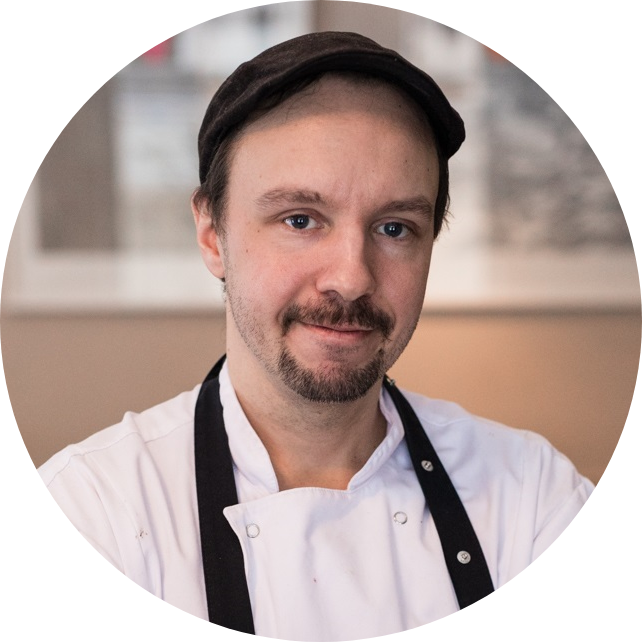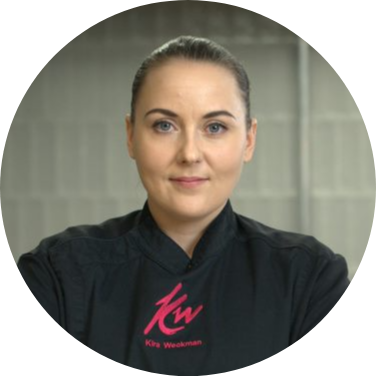
133 videos

English

270 hours

26 quizzes

Beginner
One out of 10 employees globally is found in hospitality and tourism. Will you be one of them?
This is an introductory set of courses to the vast field of hospitality and tourism. This set of 5 high-quality courses takes the participant to a new level in understanding the business logic and working structure of hospitality and tourism, as a people business, experience business, and a business area developing fast during the years to come.
This course package aims to develop a wide perspective on modern hospitality and tourism as a multi-form industry and the issues affecting it. Lessons included will explain the central concepts and definitions used in the respective business areas.
Course mode: Self-study
Course material: 133 videos, over 10 hours of video material, one video podcast, 26 quizzes. Estimated total study time, 10 ECTS equivalent, 270 hours of workload.
Targeted to: People already working in hospitality and tourism, wanting to broaden their skills and knowledge base. Also, it suits everyone interested in acquiring the basics of the business as a whole.
Understanding the impact of current worldwide trends is vital for developing your future career.
Course overview
This course package gives you an extensive overview of the multitude of modern hospitality and tourism business. We offer you five independent courses on key topics of the industry.
The course package enables you access to the five following courses:
- Travel & Tourism Business
- Accommodation Business
- Food & Beverage Management
- Culinary Management
- Accounting and Managing Numbers
+ a free bonus e-book glossary: ‘The language of Hospitality & Tourism’ to help you to get started with the terminology.
Course objectives
After completing the course package, the participant:
- has a solid understanding of the local and global importance of the hospitality and tourism industry, the principles and codes of behavior, and how to succeed in one’s work
- is able to start pursuing a career in this number one business in the world
- knows how worldwide trends and issues shape the business
Skills
Upon completion of this set of courses, the participant is able to:
- explain the complexity of the hospitality and tourism business
- understand the multitude of various components of the business
- assess the impact of hospitality and tourism
- apply theories into practice in the hospitality and tourism field
- apply the basic skills acquired to start working in the business
Course outlines
The participants are expected to watch all the Courses’ video content under each module, acquaint themselves with additional materials provided, and then take the quizzes. Each quiz can be taken 3 times and we recommend that participants watch the videos and study the material well until they feel they mastered the topic.
Travel & Tourism Business
Tutorial 1. Introduction to travel and tourism
1.1 History of tourism in a nutshell
1.2 Tourism as a concept
1.3 Tourism types and categories
1.4 Tourism system, push and pull factors
1.5 Destination management
Tutorial 2. Tourism demand
2.1 Tourist motivation
2.2 Segmenting the tourism market
2.3 Megatrends and trends affecting the tourism industry
Tutorial 3. Tourism as a global business
3.1 Classifying tourism
3.2 Risks and security impacting the industry
3.3 Travel and tourism cluster
Tutorial 4. Sectors of travel and tourism
4.1 Air transport
4.2 Water and land transport
4.3 Travel agencies and tour operators
Tutorial 5. Sustainable tourism
5.1. Economic impact of tourism
5.2. Socio-cultural impact of tourism
5.3. Environmental impact of tourism
5.4. Sustainable and responsible tourism
Accommodation Business
Tutorial 1. The accommodation business environment, its structure, and various business models and concepts
1.1 Introduction
1.2 Characteristics of the accommodation business
1.3 Trends impacting hotels
1.4 Classification of hotels
1.5 Interview: Valo Hotel & Work General Manager Tom Strandberg
Tutorial 2. The rooms division department
2.1 Learning outcomes: The rooms division department
2.2 Front office or reception
2.3 Reservations or in-house sales
2.4 Concierge
2.5 Revenue management
2.6 Guest services
2.7 Housekeeping
2.8 Safety & Security
2.9 The general manager
2.10 Example of a career path in rooms division department
2.11 Job description
2.12 Interview with Mrs. Lilja Mauno
2.13 Case: Citizen M
2.14 Summary
Tutorial 3. Focus on Service
3.1 Learning outcomes
3.2 The pineapple tradition
3.3 Focus on service
3.4 The Ritz-Carlton gold standards
3.5 Characteristics of the modern guest
3.6 Amadeus future traveller tribes 2030
3.7 Developing the service experience
3.8 Service design
3.9 Five principles of service design
3.10 The service path or journey of the guest
Food & Beverage Management
Tutorial 1. F&B as an operational environment
1.1 Learning outcomes
1.2 F&B as an operational environment / Restaurants
1.3 Cafes and bakeries
1.4 Pubs & Bars & Nightclubs
1.5 Contract catering
1.6 Recap & Review questions
Module 2. Types of F&B organisations
2.1 Learning outcomes
2.2 Understanding eating out / Level of service / Price
2.3 Degree of choice
2.4 Cuisine type & Theme restaurants
2.5 Recap & Review questions
Module 3. Operational management in F&B
3.1 Learning outcomes
3.2 Exceeding expectations & Service triad
3.3 Servqual
3.4 Servicescape
3.5 Brigade system
3.6 Cost structure / Breakdown of common costs in F&B / Turning a profit
3.7 Profitability of alcohol / Profitability of food coffee and tea
3.8 Recap & Review questions
Module 4. Hospitality operating systems
4.1 Learning outcomes
4.2 Digitising F&B operations
4.3 POS systems / Stationary / Mobile / Self-service
4.4 Kitchen display systems
4.5 Systems for scheduling
4.6 Systems for purchasing
4.7 Systems of taking and managing bookings
4.8 Recap & Review questions
Module 5. Fluctuating customer tastes
5.1 Learning outcomes
5.2 Tenets of F&B
5.3 Diffusion of innovation & The ever-changing landscape of F&B
5.4 Food courts & Food trucks
5.5 Online delivery aggregators
5.6 Dark & Virtual kitchens
5.7 Recap & Review questions
Culinary Management
Tutorial 1. Professional kitchens – From past to present and Fast food to Fine dining
1.1 History of Professional kitchens
1.2 Hierarchy and working culture
1.3 Professional kitchens today
1.4 The business – What and How
Tutorial 2. The HoReCa business – What and How
3.0. Customer service
3.1. Balancing between costs and profit
3.2. Pros and cons of the industry
Tutorial 3. Leadership and staff management – What does it take to be a good manager?
4.0. Creating a Team
4.1. The role of a Team leader in a multicultural environment
4.2. Communications
Tutorial 4. Product development
5.0. Innovating
5.1. Resources
5.2. Seasons and Trends – How to stay one step ahead?
5.3. Availability and Costs
5.4. Nutritional value and diets
5.5. Recipe development
5.6. Menu planning
5.7. Sustainability
Tutorial 5. Production planning
6.0. Process planning
6.1. Resourcing
6.2. Quality control
Tutorial 6. Safety in a professional kitchen
7.0. HACCP planning
7.1. Food safety
7.2. Working safety
Tutorial 7. Marketing and Sales
8.0. The role of a manager in marketing
8.1. The role of a manager in sales
8.2. Customer feedback and satisfaction
Tutorial 8. Career paths of a head chef
8.1 My professional path to where I am today
8.2 How to succeed in the industry?
9.2. How to proceed if you get interested in culinary management?
Accounting and Managing Numbers
Tutorial 1. Introduction to Accounting
1.1 Introduction
1.2 What is accounting
1.3 Financial Accounting
1.4 Management accounting
Tutorial 2. The Income Statement
2.1 Introduction
2.2 Revenue recognition and allocation of short-term expenses
2.3 Allocation of long-term investments
2.4 Profitability
Tutorial 3. The Balance Sheet
3.1 Introduction
3.2 Equity and Liabilities
3.3 The accounting equation
Tutorial 4. CVP analysis
4.1 Introduction
4.2 Contribution margin income statement
4.3 Break-even point
4.4 Margin of safety
Tutorial 5. Pricing
5.1 Introduction
5.2 Contribution margin pricing (example VAT)
5.3 Bottom-up approach
Why start studying now?
Want to pursue a career in international hospitality and tourism? First, you have to understand how it works, be aware of the history, present and future of the business, of the players, codes of conduct and operating models, and concepts to become a solid player in the field.
Understanding, evaluating, applying into practice and renewing your own business is the key.
The course will facilitate your journey in business life. Do not waste a minute – start your new career today!
How do I purchase the course?
You may buy the course by adding it to the shopping cart on this page. You can pay with a credit card, bank transfer, or in-company purchases request for an invoice. You will receive an e-mail confirmation of your order. It contains all relevant data on your purchase.
If you’re ordering the course for multiple users, you will be contacted after your purchase. Credentials to each user will be sent via personal email after verification of your payment.
If you make a company purchase and wish to be billed, you will be contacted. You will receive your credentials to use the course upon payment of the bill. If you have any questions or inquiries, do contact us at online@haaga-helia.fi.
How do I get access to the materials and for how long do I have to finish the course?
After we have verified your payment, you will be sent credentials for the log-in to the learning environment, where you will conduct your studies. In the learning environment, you will find all your study materials available for you for 12 months.
You may study at your own pace and return to study materials at any time you wish.





